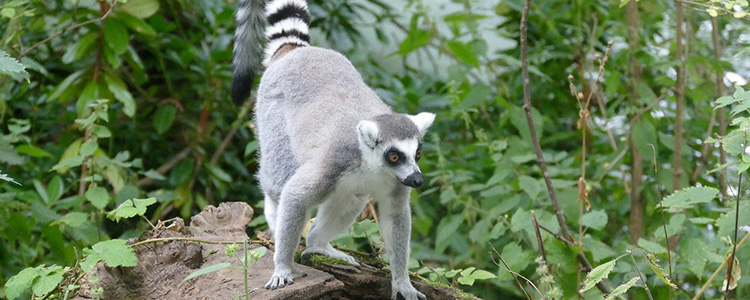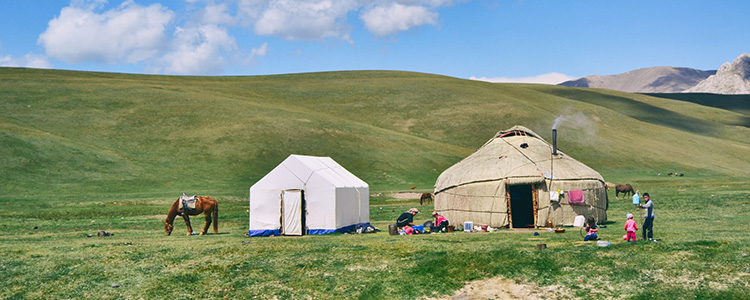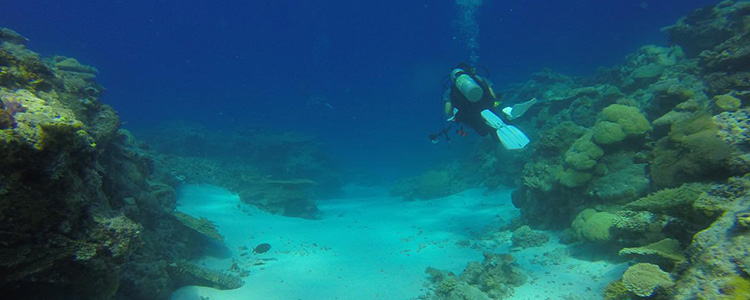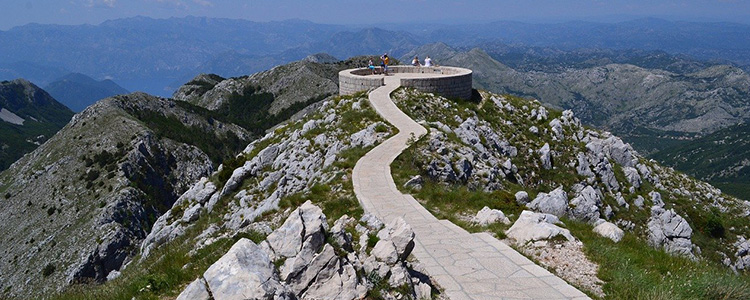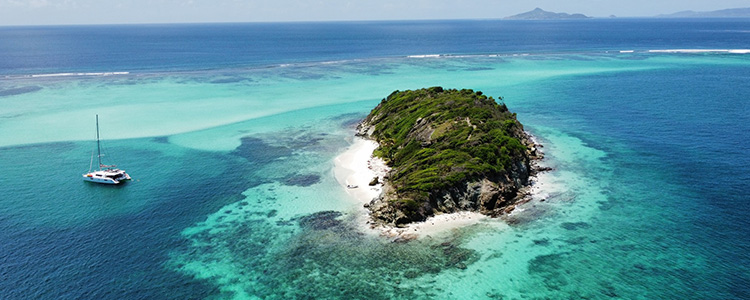India: Het land van Enlightenment & The Dark Ages
Vliegtuig in -Bots- vliegtuig uit: Dubai –Bots. Vliegtuig in –Bots- Vliegtuig uit: Chennai. De warme lucht,vochtiger, pittiger en meer bedrukkend -nog gevuld met zon van de vorige dag, gevuld met de luften van Indiërs, theeplantages specerijen en heel veel onbekends. Een onbeschaamd lange rij voor de visa-controle, alsof het drie keer de States is. Een kleine Indiër in een volledig wit gewaad die ons naar een taxi leidt zonder een woord te zeggen –een taxi die lijkt te zijn gemaakt om 5 van onze taxichauffeurs te kunnen vervoeren en hooguit anderhalve Nederlander en van een materiaal dat doet denken aan de golfplaten uit de slums van een gemiddelde grote stad in een ontwikkelingsland van de films van national geographic, alhoewel glanzend gepolijst wit. Na de eerste anderhalve kilometer verassend goed asfalt, worden de verwachtingen al snel waargemaakt en verandert de rit in hobbel-gat-krater. Hoewel het toetergedrag mijn lichaam mijn welgewenste slaap ontneemt, lijkt de gemoedsrust van onze chauffeur en andere verkeersdeelnemers niet te worden belet door de belachelijke inhaalmanoeuvres en het koor van claxons. Zo chaotisch als het verkeer, zo chaotisch ook de bouw van de huizen die we passeren –rijkelijk versierd met reclameborden. De mannen in lendendoekjes en de vrouwen rijkelijk gekleurd in sari’s –van pimpelpaars tot mosgroen en van kanariegeel tot fluweelrood. De vegetatie bestaat uit palmbomen en plastic –op elke open plek lijkt een poging te zijn gedaan om deze goed aan te kleden met een berg plastic en ander afval- tja, wat moet je anders met zo’n open ruimte.
Aangekomen in het guesthouse –tussen de houten hutjes die afgewisseld worden door betonnen huizen van drie verdiepingen- blijkt dit een oase van rust te zijn. De palmbomen en ander gewas vormen een halve jungletuin en het geluid van golven die het zand omwoelen met een licht gebulder biedt een rust en eenvoud die op geen enkele manier lijkt te passen bij de chaos van de beelden uit de taxirit. Yes, we zijn in India.
In India is geduld niet een schone factor, maar een onontbeerlijke eigenschap. Hoewel ik dag twee al met mijn project zou beginnen, was door een kleine ‘miscommunicatie’ mijn commence nog met een dagje uitgesteld. Dan maar de omgeving verkennen op een gehuurd brommertje. Opvallend veel natuur en hippie-westerlingen. Het nabij gelegen dorp Auroville blijkt een in de jaren zestig opgezette community, naar een beeld van een Utopia, waar spiritualiteit, (self-)sustainability en het leven in een gemeenschap de steunpilaren vormen van een internationale gemeenschap, die woont, werkt, en mediteert (concentreren noemen ze het) in een bos dat gecentreerd is om een gigantische gouden bol – de Matrimandir. Het begint me allemaal weer te dagen; de verhalen over meditatie, Osho, en ashrams die ook onlosmakelijk verbonden zijn aan India. Moessonachtige regenval, maar warme regen. Ja Nederland, Warme regen.
‘s Ochtends wakker worden, deur open … WAT??!? Zieke chaos –planten tegen mijn raam aangedrukt, een struik die nog half aan mijn deur hangt. Iets verder kijken… Nee?!? Omgevallen bomen, plassen als zwembaden, elektriciteitspalen omgevallen, daken aan stukken gerukt, houten hutjes uit hun voegen geplukt alsof het herfstpaddenstoelen zijn. Wil ik verder kijken? Verder kijken in wat? Surrealisme. Slaap ik nog? Nee, gewoon een vaste slaper.
Praten met mensen –verhalen over Tsunami’s, stormen en cyclonen. Gaat er nog meer komen? Onbekend, vanwege het gebrek aan elektriciteit zijn tv, internet, en andere bronnen die media kunnen verschaffen, onbruikbaar. Hoe is de chaos in de stad? Zijn er doden gevallen… ja, lijkt me wel, hoeveel dan? 3300, 33 of 7? Verhalen gaan de ronde en worden veranderd als de dagelijkse gossip van een theekransje van dames uit het Gooi. Waarheid mixt zich met onwerkelijkheid, net zoals de beelden voor me van een dorp dat hand in hand loopt met de nieuwe kennis genaamd Destructie.
Op de brommer richting de stad om een betere indicatie te krijgen van de chaos en vernietiging, misschien wel om alles nog wat beter te laten binnendringen. De storm blijkt een cycloon te zijn geweest, met de naam Thane. Zeker 33 doden, miljoenen aan schade, één-derde van alle bomen in de regio is omgevallen en wanneer de stad en de omgeving weer tot de orde van de dag over kunnen gaan, is reeds onbekend. Kunnen we nu helpen, ergens, hier of in een ander dorp? Onze hulp is mogelijk gewenst in een dorp 40 km verderop, maar daarover worden we nog op de hoogte gesteld. Nog geen 200 meter van ons guesthouse heeft de storm in samenwerking met de zee een hele gemeenschap aan op palen staande houten hutten met de grond gelijk gemaakt en sommige hutten een tiental meters verplaatst. Nog geen 200 meter van mijn eigen bed af.
Kaarslicht en regen typeren de avond en de nacht. Hoewel de spanning ook iets romantisch heeft, weten de kaarsen niet voldoende licht de brengen in de duisternis die de natuur ons -en vooral de Indiers om ons heen- heeft opgelegd. De dag van de nacht gaat over in de nacht van de dag, waar slechts onze slaap verlichting kan brengen.
Pfoehh, oudejaarsdag waarbij het lijkt alsof er deze keer wel proper vuurwerk is gebruikt, veel te krachtig, zonder knallen. Zo eindig je ’s avonds midden in het junglebos van Auroville, met een stel Indiërs –die wel eng veel interesse tonen in de drie Hollandse jonge vrouwen die mij vergezellen hier in India- op het terrein van een Fransman: Spa, zwembad, bostuin, kaarslicht, Schotse whiskey en interessante gesprekken met een paar “Aurovillains” van het eerste uur –over de visie, de praktijk en wat nog komen gaat. Gelukkig nieuw jaar, op een jaar “overal reizen, overal thuis voelen”
De dagen die volgden stonden in het teken van beginnen met de projecten. Aangekomen bij HOPE moest ik gelijk aan de slag als rapporteur om een indicatie te maken van de schade in een aantal van de zwaarst getroffen dorpen. Voor het eerst in een Indiase bus –Wat een beleving!- op weg naar plekken waar niks meer is zoals het was. Aangekomen bij de bushalte wordt ik geëscorteerd naar de dorpen door een man met motor en dient een gebrekkig Engels sprekende vrouw als mijn tolk. Tja, wat doe je, wat schrijf je op? Foto’s maken, met mensen praten, noteren –de wanhoop, vernietiging en armoede recht in de ogen kijkend. De volle zon, de dampen van destructie en de beelden; daarbovenop nog eens de te simpele maaltijd die ik mijzelf had gegund. Hoofdpijn en een borrelende maag. Ik beleef India niet meer, maar India begint mij te beleven. Aangekomen in het guest house, dat voor drie-en-halve week mijn thuis zou zijn, mijn bed in. Uitzweten en uitwerken. Alle kracht en helderheid vervalt of vervliegt. De slaap en de ziekte omvatten mij en nemen mij mee naar de wereld van dromen en nachtmerries, in een blur waarin zij elkaar afwisselen. Als ik de volgende ochtend wakker wordt, besef ik me dat de kleuren weer normaal zijn en het geborrel in mijn buik nu de smacht naar een goed ontbijt inluidt. Gelukkig, maar een korte avond ziek. Gewoon weer naar HOPE toe om de rapportage van het bezoek aan de dorpen op te schrijven.
De dagen hierop volgend, heb ik het rapport uitgebreid en ben ik begonnen met lezen van de literatuur over kinderrechten, die ik had meegenomen uit de bibliotheek van het Vredespaleis. Mij werd de opdracht gegeven om een indicatie te maken van de internationale rechten, de (Indiase) nationale rechten, en de regionale (van de staat Puducherry) rechten voor het kind. Ik moest de vragen waar ik tegenaan liep, opschrijven. De antwoorden op deze vragen zouden worden gegeven door overheidsbeambten en anderen die zich gespecialiseerd hadden op dit vlak, zo meldde mij Mr. Victor Raj, de grote man achter HOPE. Al lezende kwam ik te weten hoe de internationale wereld en India progressie hadden gemaakt op het gebied van de milleniumdoelen –voornamelijk op het gebied van armoedebestrijding, educatie en seksengelijkheid. Ook kwam ik tegen waaraan nog veel gesleuteld moet worden en waar de grote onduidelijkheid overheerst. Milleniumdoelen, Milleniumuitkomsten en Milleniumdromen.
Naast het feit dat je als wereldsupporter komt om ergens met iets en aan iets hulp en ondersteuning te bieden, is het van belang om wat meer van het land te zien. De weekenden bieden hier prima mogelijkheden toe. Zodoende maakten wij een trip naar Ooty “The Queen of Railway Stations”. Dit prachtig gelegen dorpje op 2200 meter ligt op een berg die doet denken aan een gemiddelde Zwitserse berg, alleen dan bedekt met theeplantages en surrealistisch ogende bomen. Een cottage met openhaard, een diner in het prachtige …hotel, een boathouse, een persoonlijke taxichauffeur –omdat dit allemaal toch niet veel duurder was en luxe soms ook gewoon fijn is. De volgende dag naar Mudumalai voor een safari die toch niet zo ‘Afrika’ bleek te zijn, alhoewel de belachelijk mooie uitzichten, in het wild levende olifanten en de bewoners die nog steeds olifanten gebruiken als heftruck en buldozer toch nog steeds het geheugen prikkelen met de zinspreuk: “Welcome to India”. Ook viel mij de ontzettende verscheidenheid in vegetaties, landschappen en dieren op, die India rijk is. Van Nederlands polderlandschap tot Zwitsers schapengraslandschap, van Indonesische theeplantages tot Afrikaanse steppes. Al deze gezichten zijn alleen al aanwezig in het zuiden van het land, laat staan wat je tegen kan komen als je door het hele land reist. Daarnaast biedt Ooty nog botanische tuinen, rozentuinen en al het andere dat een gemiddelde Britse kolonialist tot zijn beschikking wilde hebben. Een fantastisch treintochtje naar Conoor voor een bezoek aan de theeplantages is ook om over naar huis te schrijven. De briljant heldere lucht gevuld met thee en wat kruiden is als een walhalla voor de neus. De eerste echt spontane kennismaking met Indiase gastvrijheid werd ons hier ook in de voeten geworpen –Mirjam en ik werden op de theeplantage uitgenodigd door een van de theeplantageboeren/eigenaren. De familiefoto’s werden uit de kast gehaald, onder het genot van een goede chai.
Op de terugweg Justine en ik ziek, waarschijnlijk door een verkeerde lunch. Hellride. 10 uur lang in een kleine taxi op een weg waar er systematisch wordt geprobeerd om je wakker te houden. Van gaten en kraters tot claxons en van haarspeldbochten tot elke auto die met groot licht rijdt. India beleefde mij weer. Ik ervoer hoe India mij in de greep had en ik zag voor me hoe dit elke dag miljoenen Indiërs overkwam. De Indiërs die het geld en de welvaart niet hadden om India te beleven, en dus werden beleefd. Een India van schimmen en schaduw. Een India waar geen licht en geen water is, alsof men nog steeds in de donkere middeleeuwen leeft, The Dark Ages.
Volgende dag weer beter, –in dat opzicht heeft alles qua ziekte erg meegevallen, door het snelle herstel- op naar HOPE. Deze week begonnen de interviews om de vragen beantwoord te krijgen die ik was tegengekomen. Met Guru op pad, een Indiase volunteer die tevens als mijn tolk zou gaan werken. Nette kleding aan, op naar de departementen (ministeries van de staat Puducherry), Guru het woord laten doen, door hem ingeleid worden alsof ik de nieuwe Jezus was, eindigen aan een bureau van een té belangrijke ambtenaar op het desbetreffende departement. Van een executive cum-magistrate revenue officer tot onderdirecteur op het departement voor sociale zaken, en van onderdirecteur van een observation home (lees: jeugdgevangenis) tot directeur van het departement voor sociale zaken –allemaal passeerden ze de revue. Het golden duo Niels & Guru was gezet, gesetteld en op pad. We kregen vragen beantwoord, die voorheen onbeantwoord waren gebleven en toestemming voor zaken waar normaal maanden van bureaucratische procedures overheen gaan. Wij waren tevreden en HOPE was tevreden met ons. Werk werd verricht en zaken aangekaart.
Met het komen van het weekend werd niet alleen Kim gedag gezegd en een goede reis gewenst, maar zo ook Justine. Mirjam en ik bleven over. We hoorden van hippe doch pure Stockholmers dat Hampi the place to be was. Nachtbus in –Bots- Bangalore. Dagje toerist in een rikshaw door de stad. Van paleizen tot tempels en van parken tot warenhuizen. Bangalore als Silicon Valley van India is als een groeiend paar longen. De stad slurpt met de dag meer lucht op, maar wordt ook steeds levendiger, grotesker en moderner. Als ergens de nieuwe welvaart van India te zien is, is het in Bangalore.
Nachtbus in –Bots- Hospet. Nog emergency tickets weten te hosselen bij het treinstation voor de terugreis –Mirjam en Niels op pad is altijd geluk. Chille rikshaw-driver die ons naar Hampi brengt en een prima guesthouse kamer. Het plan om in de tempels te slapen wordt afgeschreven –toch niet zo veilig, blijkt. Op de weg naar het dorp toe verbaasde ik me al over de schoonheid van het landschap, rijkelijk gevuld met palmbomen, rijstvelden, bananenplantages en de bolderrotsformaties. In en rond het dorp ook nog prachtige –als de Griekse ruïnes aandoende- tempels. Een soort Indiaas Rome, maar dan te midden van een prachtig stukje natuur, met bizarre rotsformaties en minder toeristen. Het echte vakantiegevoel zwol aan zoals mijn fantasie werd geprikkeld door het onwerkelijk aandoende aangezicht voor mij. Hampi blijkt de grootste archeologische site te zijn na Rome en echt een van de mooiste plekken op aarde waar ik ben geweest.
Een weekend vol prachtige natuur, oude cultuur en oprechte ontzettend vriendelijke mensen -Hampi. Terug met de trein. Ideale manier van reizen in India, omdat je geen last hebt van de hobbel-krater-slinger wegen en het vrij steady door gaat. De hygiëne is hier weer zoals overal in India. De kakkerlakken liepen over de muur en de pittige luften die een indirect gevolg waren van het Indiase voedsel maakten het broeierig en plakkerig. Ik heb me echter wel verbaast over het feit dat zoveel mensen bij elkaar zitten, zo dicht bij elkaar, zonder dat ze zich aan elkaar gaan irriteren. Hoewel een wachtrij meer een gevecht is om maar vooraan te komen onder de zinspreuk van “ieder voor zich”, lijkt iedereen in een trein één familie, of ten minste goede buur. De bescheidenheid die soms zo ver te zoeken is, wanneer er bijvoorbeeld voor een derde keer wordt aangedrongen om maar met wildvreemde Indiërs op de foto te moeten, bundelt zich in dergelijke momenten als treinreizen. De noodzakelijkheid maakt dat elke Indiër bereidt is, als een tweede natuur, zich aan te passen aan de situatie. Er kan veel slecht gesproken worden over de hygiëne, de corruptie of de geldbaatzuchtigheid van Indiërs, maar hun aanpassingsvermogen is ongekend. Het leuke aan die treinreizen is ook dat je van alles en iedereen tegenkomt. Zo ontmoette ik een Nederlandse Jimmy, die zijn baan had opgezegd om -zonder te vliegen- naar Australië te reizen. Voor een onbepaalde tijd, zonder tussenplannen –gewoon om te reizen. De prachtige eenvoud die daar achter schuil gaat, maar ook het gevaar om altijd maar op pad te blijven, streelde mijn fantasie over grootse plannen voor mijzelf om te reizen. Nu nog even niet.
De laatste dagen van zo’n reis naar India zijn raar. Terugblikkend op wat is geweest, het moment nu belevend en toch ook nog denken over hoe ik nog zoveel mogelijk India kan beleven in de dagen en uren die nog voor me liggen. India was, is en zal altijd, een avontuur zijn. Een land vol mogelijkheden, dromen –die uitkomen en vervliegen-, nachtmerries –die uitkomen en vervliegen- kansen en beperkingen. Van de natuur tot de mensen, de verscheidenheid is onmetelijk.
Kortom, India is avontuur.



 India
India










































